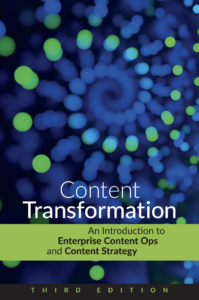XML 2006: Not the takeaway I was expecting
A conference presentation is a specialized form of technical communication — in addition to basic technical writing skills, a presenter needs the ability communicate effectively in a conference session. The presenters here are technical experts, but many of them are really terrible at the front of a room!
For example, they are making the following mistakes (some presenters are doing all of these):
- Reading slides
- Slides with too much text in too small a font (the vast majority of the presentations)
- Mumbling
- Poor microphone management (not talking into the microphone, moving back and forth so that the volume goes up and down)
- Poor time management — spending too much time on introductory material and not enough time on the important bits of the presentation
- Speaking in extreme monotones
- Sentences trailing off in volume
I don’t know exactly how conference proposals were evaluated, but it looks very much as though content is king (sounds good, right?) Proposals were evaluated on technical merit and little or no consideration was given to presentation skills.
Unfortunately, this doesn’t work. If you have great knowledge, but are unable to communicate that verbally, then putting you at the front of a room full of people is not helpful.
And worst of all, there are NO EVALUATIONS! That means that there’s little or no chance that the situation will be addressed next year. (There is an overall conference evaluation form, but you have to remember to go get it at the registration desk.)
Joe Welinske of WritersUA does the best of job of speaker assessment I’ve seen:
- He asks participants to fill out evaluations for each speaker. There are just a few questions, and each evaluation is an entry for a door prize. In other words, he bribes participants to fill out the evaluations.
- Speakers who suck with poor evaluations aren’t invited back the next year.
- He rarely allows panels or group presentations (too much diffusion of responsibility).
- Speakers who were rated highly in the past get stars on their bios, so attendees have some additional information to help them choose a session.
- Joe attends many conferences each year to evaluate prospective speakers and to gauge which topics are getting the most interest from attendees. He builds his program based on this research.
The contrast between the presentation quality here and at WritersUA is really quite stunning.



Michael Champion
You’re right that the technical content is the main consideration. But, as a member of the planning committee I can say that previous evaluations are given consideration, if available. There are evaluation forms floating around the conference. If you didn’t get a chance to comment on a specific speaker, you could let me know the evaluation privately and I’ll see that the feedback gets put in the evaluation database for the future.
Charlie O
I just got back last night from Boston. I agree with you on your assessement.